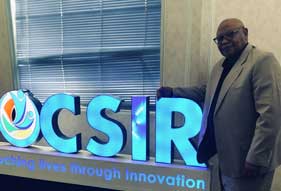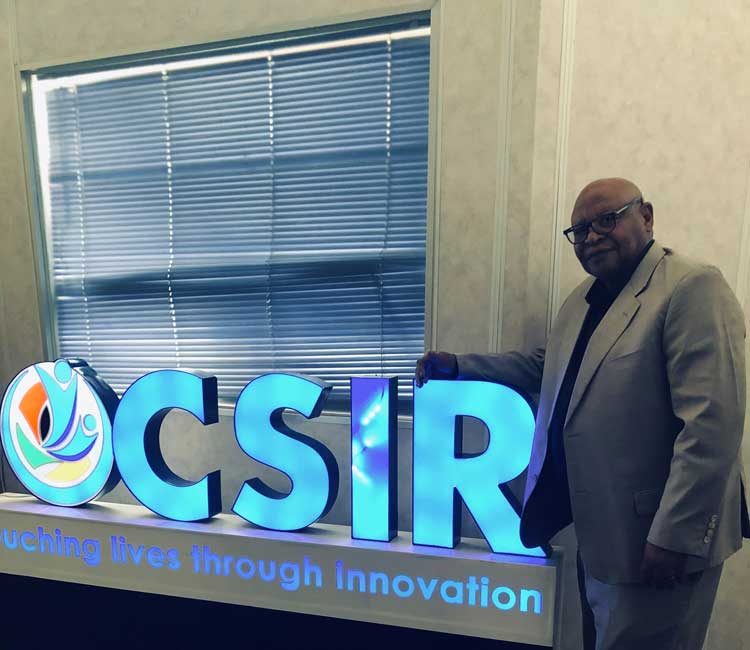
South Africa’s Electric Motor Revolution: A Vision for a Sustainable Future
02 December 2024 | STORY Staff Writer. PHOTO VUT.

In a forward-looking discourse that highlights South Africa’s readiness to embrace transformative green energy solutions, Professor Pule Kholopane from the Department of Industrial Engineering, Operations, and Mechanical Engineering (IEOMME) at the Vaal University of Technology (VUT) recently ignited conversations on the future of electric motor innovation. Speaking at the Council for Scientific and Industrial Research (CSIR), Professor Kholopane shed light on the pivotal role of cutting-edge electric motor technology in driving the global transition towards sustainable energy systems.
The keynote presentation comes at a critical juncture as South Africa navigates challenges in energy efficiency and carbon reduction while striving to bolster its industrial capacity. Professor Kholopane’s focus on the advancements in electric motor efficiency underscored how this innovation could revolutionise transportation, renewable energy, and industrial processes, paving the way for a more sustainable future.
This presentation is part of an exciting collaboration involving Solargroup, an international green energy investment platform, and Sovelmash, its engineering partner. Sovelmash’s trailblazing work in electric motor technology promises to reduce energy consumption, enhance sustainability, and elevate South Africa’s status in the global clean energy landscape.
One of the most significant developments discussed was Sovelmash’s plan to establish an electric motor assembly plant on the African continent, with South Africa as its inaugural location. The plant is set to enhance local manufacturing capabilities, generate employment, and drive knowledge transfer, solidifying South Africa’s position as a leader in green energy innovation.
This facility also aligns with South Africa’s broader energy and economic goals, including its commitment to reducing carbon emissions and expanding renewable energy adoption. By producing energy-efficient motors locally, the country will not only reduce its reliance on imports but also create a ripple effect across industries that depend on sustainable power solutions.
Professor Kholopane’s presentation was a clarion call for stronger collaboration between academia, industry, and government. He highlighted the importance of fostering partnerships that prioritise innovation and sustainable development.
“As we aim for a low-carbon economy, electric motors represent a cornerstone of energy efficiency and environmental sustainability,” said Professor Kholopane. “By integrating advanced technologies into our industries, we are not only safeguarding our planet but also unlocking new economic opportunities.”
The advancements in electric motor technology exemplify South Africa’s potential to lead the green energy movement. Professor Kholopane’s insights emphasise the critical role that institutions like VUT play in bridging the gap between research and industry application, ensuring that technological breakthroughs are accessible and impactful.
With Sovelmash’s electric motor innovations on the horizon, South Africa is poised to emerge as a trailblazer in the clean energy sector. The anticipated launch of the assembly plant is more than a technological milestone; it is a testament to the country’s commitment to innovation, sustainability, and economic growth.
The implications of Sovelmash’s entry into the South African market extend beyond immediate technological advancements. This collaboration promises to position South Africa as a hub for sustainable energy solutions in Africa, fostering global partnerships and inspiring further investment in the green energy sector.
Professor Kholopane’s recent presentation is a powerful reminder of the role visionary leadership and strategic collaboration play in shaping a more sustainable future. As South Africa gears up for a new chapter in its energy narrative, the potential for growth and innovation in the electric motor industry signals a brighter, greener tomorrow for all.




